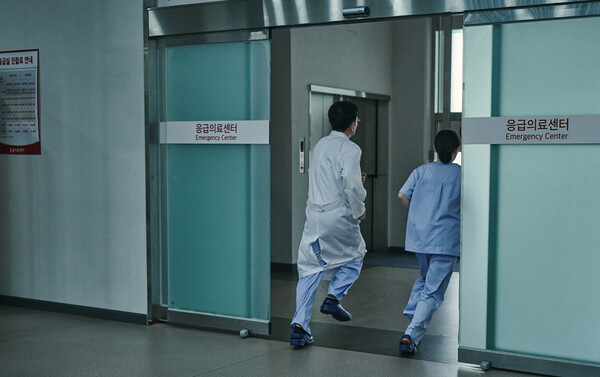
Faced with a recent series of cases where emergency patients die after failing to find emergency rooms to accept them, the medical community called for a law that limits the use of ERs by patients with mild symptoms.
Some medical societies pointed out that it is not a problem that can be solved by simply sending another emergency patient to an already overcrowded emergency room. They added that it may become impossible to provide follow-up treatments, such as hospitalization or surgery, depending on the hospitals' situations.
In a statement Wednesday, the Korean Emergency Medical Association (KEMA) expressed regrets about some media outlets’ description of the issue as “ER pilgrimage” while “ignoring the inherent structural problems and circumstances and creating the misconception that these were due to deliberate refusal by emergency rooms.”
Such sensational reports exacerbate the already fractured patient-physician relationships, stoke public anxiety, and ultimately contribute to an increase in unnecessary lawsuits and an exodus of frontline healthcare workers due to pressure, it added.
When an emergency patient dies while bouncing around hospitals, it’s due to a lack of capacity to provide follow-up treatment at these hospitals, it said. It added that they did not have sufficient medical resources at that time and place to treat the patient.
“At the very least, an emergency department should have an intensive care unit and an emergency trauma surgery team for severe trauma patients. Ignoring this and dropping them off at the nearest emergency room is not the right solution,” the association said. “Scapegoating first responders will not reduce preventable emergency and trauma deaths. When even well-intentioned emergency treatments face civil and criminal lawsuits if their results prove poor, the addition of media-led trials and legal punishment for refusing a transport call will only accelerate the exodus of emergency medical technicians (EMTs) and disrupt this medical area.”
KEMA stressed the need to create a structure that allows severe emergency patients to access emergency rooms on time. To this end, it demanded that a law be enacted to restrict minor patients from freely accessing emergency rooms or higher-level hospitals and that a working group is formed to address the problem of patient overcrowding in tertiary general hospitals.
"To ensure that more patients with severe emergencies have access to treatment, it is imperative to address overcrowding in tertiary care hospitals, discourage the use of emergency departments for minor injuries, improve emergency medical infrastructure in underserved areas, and address abnormal emergency department utilization behaviors,” it said. “The decision to accept a transfer inquiry is a complex judgment made by the on-site medical staff, taking into account hospital capabilities and circumstances, and must not be subject to punishment.”
In particular, it called for “a special law to prohibit the transfer of mild patients to 119 and their use of tertiary hospitals.”
The Korean Society for Pediatric Emergency Medicine also said the media’s expression of “ER pilgrimage” hides the reality but “paradoxically led to social criticism of doctors and hospitals who treated patients during the most difficult moments.”
The society said so in a letter to its members on Tuesday.
“We are concerned that this incident will further undermine frontline emergency care,” it said. “The collapse of the pediatric emergency medical system will be accelerated if pediatricians, who have stood the test of time armed with a sense of mission and responsibility in the face of manpower shortage and excessive workload, are forced to consider resigning or leaving the field seriously.”
The society pointed out a phenomenon in Korea that makes it very difficult for sick children to get the right care at the best possible time at the hospital. For instance, Paramedics must call for more than an hour to find a hospital accepting pediatric patients. Then they have to travel dozens of kilometers with the patient in tow to find the hospital that can provide pediatric care.
"Even if patients receive treatments at the emergency room, they are not admitted to a hospital room due to staffing shortages, so they have to spend several nights in the emergency room. Then, if they want to see a pediatrician, they must go in a long line that starts to form at dawn,” it said. “In March, we presented methods to improve the pediatric emergency medical system, but nearly 100 days after the announcement, there has been no improvement or movement toward change.”
Related articles
- PICUs vital for reducing mortality in critically ill children, yet facing shrinking numbers
- Health ministry disciplines 4 Daegu hospitals for teen’s death in ambulance
- ‘Medically advanced Korea lags in pediatric intensive care’
- Half of severe emergency patients unable to reach ERs within golden time
- ‘To prevent death in ambulance, emergency care system needs urgent reform’
- ‘Korea's healthcare system starts to collapse. Medical fee system change cannot fix it.’
- Over 700 pediatricians flock to learn lucrative cosmetics biz
- ‘I can’t do this anymore.’ Pediatrician closed clinic due to parental complaints.
- Pediatricians' group to sue mother for sending 9-year-old to clinic alone

